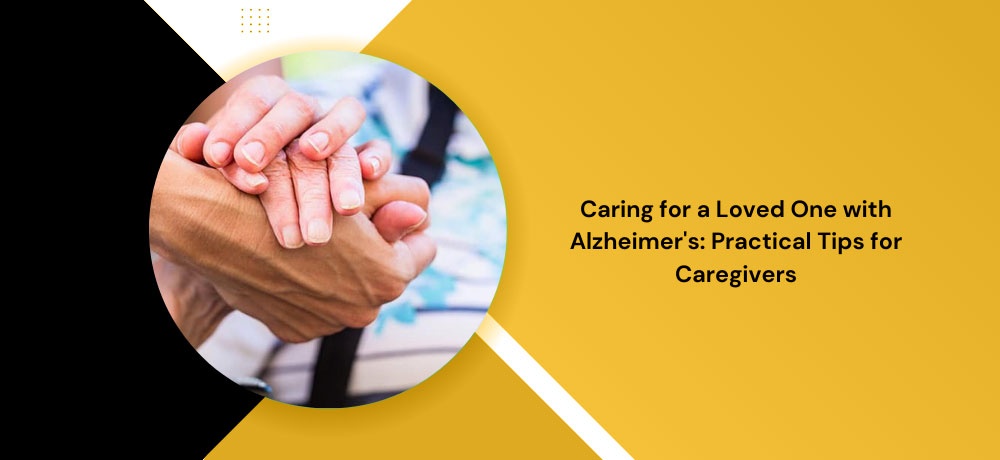Caring for a Loved One with Alzheimer's: Practical Tips for Caregivers

Caring for a loved one with Alzheimer's disease can be emotionally and physically challenging. As a caregiver, it's essential to provide the best possible support while maintaining your own well-being. In this guide, we'll explore practical tips and advice for caregivers dealing with the unique demands of Alzheimer's care.
Understanding Alzheimer's Disease
What is Alzheimer's Disease?
Alzheimer's disease is a progressive brain disorder that affects memory, thinking, and behavior. Understanding the disease's stages and symptoms is crucial for caregivers.
Communication Challenges
Alzheimer's can lead to communication difficulties, including repeating questions, forgetting words, and confusion. Patience and effective communication strategies are vital.
Behavioral Changes
As the disease progresses, behavioral changes like agitation and aggression may occur. Learning how to manage these behaviors is an essential part of caregiving.
Creating a Safe Environment
Home Safety
Evaluate your home for potential hazards and make necessary modifications, such as removing tripping hazards and installing handrails.
Medication Management
Establish a clear system for medication management to ensure your loved one takes their prescribed medications on time and in the correct dosage.
Preventing Wandering
Alzheimer's patients may wander, which can be dangerous. Consider installing locks and alarms on doors and windows to prevent wandering.
Providing Personal Care
Bathing and Dressing
Assist with bathing and dressing, being gentle and patient. Use simple clothing and encourage independence when possible.
Incontinence Care
Handling incontinence can be challenging. Ensure your loved one has access to appropriate supplies and maintain their dignity during care.
Oral Hygiene
Maintain good oral hygiene to prevent dental issues. Use a soft toothbrush and assist as needed while being gentle and reassuring.
Nourishing Their Well-being
Nutritious Meals
Plan and prepare well-balanced meals that cater to any dietary restrictions. Offer finger foods as the disease progresses and appetite diminishes.
Hydration
Encourage regular fluid intake to prevent dehydration, especially if your loved one has difficulty remembering to drink.
Engaging Activities
Stimulate your loved one's mind with activities they enjoy, such as puzzles, music, or art. These activities can improve mood and cognitive function.
Caring for the Caregiver
Self-Care
Taking care of yourself is vital to prevent caregiver burnout. Make time for relaxation, exercise, and social activities to recharge.
Seek Support
Connect with support groups or seek counseling to share your experiences and receive emotional support from others in similar situations.
Respite Care
Consider respite care services to provide temporary relief from caregiving responsibilities, allowing you to take breaks and recharge.
Caring for a loved one with Alzheimer's disease is a challenging journey, but with the right strategies and support, you can provide the best possible care while safeguarding your own well-being. Remember that seeking help and staying informed about Alzheimer's care are essential steps to navigate the caregiving role successfully. If you are looking for home care services, then contact Crittendon Home Care. As a caregiver, you play a crucial role in enhancing your loved one's quality of life during this challenging time, and your efforts are truly admirable.
Get in touch with us today
To learn more about what we do, please click here. To contact us, please click here or call us at (913) 303-2400.